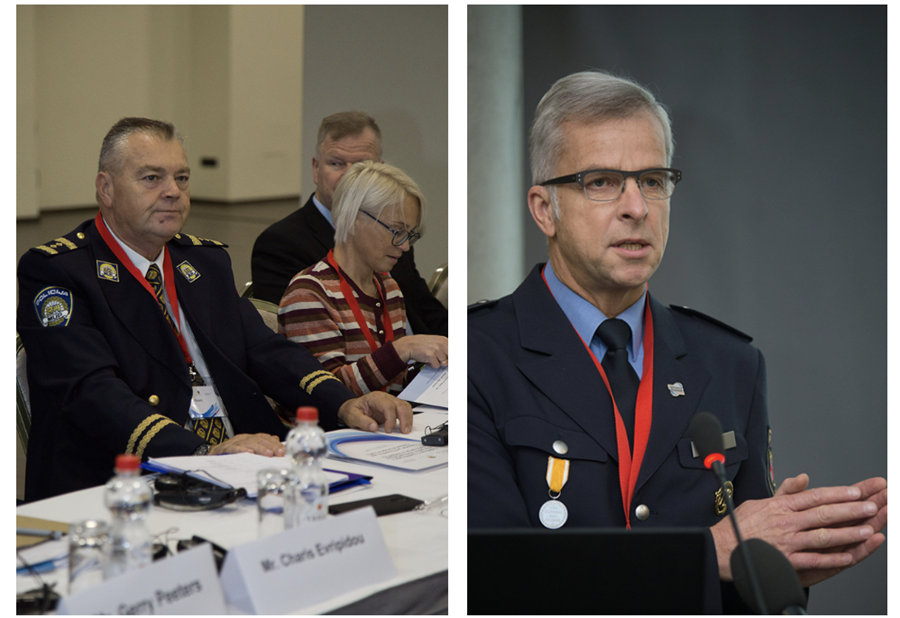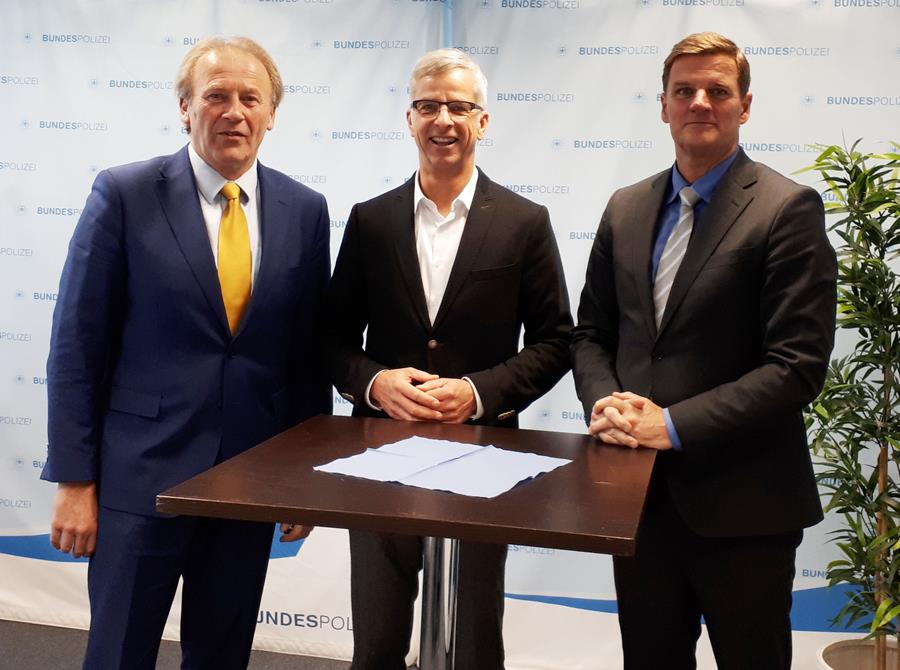
We posted this photo on Twitter and achieved the following excellent results:
Impressions: 12,501
Engagement: 1,670
Likes: 173
Retweets: 31
Impressions: 12,501
Engagement: 1,670
Likes: 173
Retweets: 31
Results from TISPOL Truck and Bus Operation, October 2019
From
14 to 20 October 2019, the Europe-wide TISPOL Control Week "Trucks and
Buses" took place, focusing on checks of commercial goods and passenger
transport. Over the year 29 European countries participate in these
operations. According to the latest feedback from 21 countries, 227,004
trucks and 113,777 buses were checked. More than 60,000 violations
were found (trucks: 49,926, buses: 11,034)
Truck control results:
- On 1,912 occasions an onward journey had to be prohibited until the safe condition of the vehicles had been restored (1,871 trucks and 41 buses). This represents a small improvement on a similar operation in July this year, when 2,092 trucks and buses were prohibited.
- The complaint rate was 22% for freight transport and 10% for buses.
- European police officers have a very high standard of training in heavy traffic controls, which is reflected in the high complaint rate.
- Most of the offences were found in the areas of technical offences and vehicle documents law for buses and in the areas of speed, legislation on driving and rest times and tachograph settings.
- 8310 drivers (trucks 7,623, buses 697) offended against Europe-wide valid social regulations, meaning they drove their vehicle for longer than legally allowed without complying with the mandatory breaks.
- On 6,049 occasions the prescribed tachographs were not properly managed.
- Manipulations of digital tachographs were detected in 664 cases (a big rise on July with a total of 370). Interfering with the settings of the tachograph or even manipulating them takes on ever larger forms. The reason for this type of fraud might be the sustained competitive pressure in this still-growing industry. The financial benefits for transporters may be large, but the risks for road safety are greater.
- Unfortunately, 220 drivers were also found taking part in road traffic under the influence of alcohol, as well as 47 drivers under the influence of drugs.
- In 10,738 cases (6,541 trucks, 2,594 buses) serious technical defects were found and the load securing was insufficient in 1,603 trucks.
- Although the offences in the dangerous goods sector initially appear small in percentage terms at less than 3%, there were 711 offences (211 more offences than in the same period of 2018).
- At the controlled buses most violations concerned missing documents (31,3%), the use of seat belt (8,3%), excessive speed (13,9%) and technical defects (23.5%).
Bus control results:
- 697 bus drivers also had exceeded the legally permitted driving times
- The result of the control week shows that inspections in the area of heavy goods traffic and passenger transport are still an important approach to improve traffic safety.
- In addition to the punishment of violations, the drivers are informed by clarifying discussions on the dangers such as insufficient securing of load, putting on seat belt or fatigue due to exceeding of driving times.
But
also the constantly increasing problem of distraction at the wheel, for
example by the use of mobile phones or other electronic devices, should
be countered during these checks
The
next TISPOL operations will take place on 3 December 2019 (Operation
ENABLE) and from 9 December till 15 December 2019 with the focus on
Alcohol and Drugs.
Belgrade seminar on drug-driving dangers
On
6 November, in Belgrade, Serbia, the Seminar on Prevention and Control
of Drugs in Traffic was held. The Seminar was organized by the Ministry
of Interior of Serbia, the Road Traffic Safety Agency of Serbia
and TISPOL. 24 participants from 16 countries, members of TISPOL, took
part in the Seminar. There were also heads of Traffic Police
Directorates from Serbia, as well as representatives of the Road Traffic
Safety Agency.
General
Police Director of Serbia, Vladimir Rebić, in his opening speech
emphasized the significance of Serbian membership in TISPOL, comparing
the state of road traffic safety nowadays and before Serbia joined
TISPOL in 2009.
TISPOL
President, Volker Orben, said that approximately 25,000 people die on
European roads each year, stressing the importance of prevention. "If
you want to save lives, you have to invest your money in road
collision prevention - this is my clear message to police officers in
every country," Orben said.

Transport security update meeting

TISPOL
President Volker Orben recently met the heads of Railpol and Airpol in
Frankfurt to discuss latest developments in issues relating to transport
security.






Δεν υπάρχουν σχόλια:
Δημοσίευση σχολίου